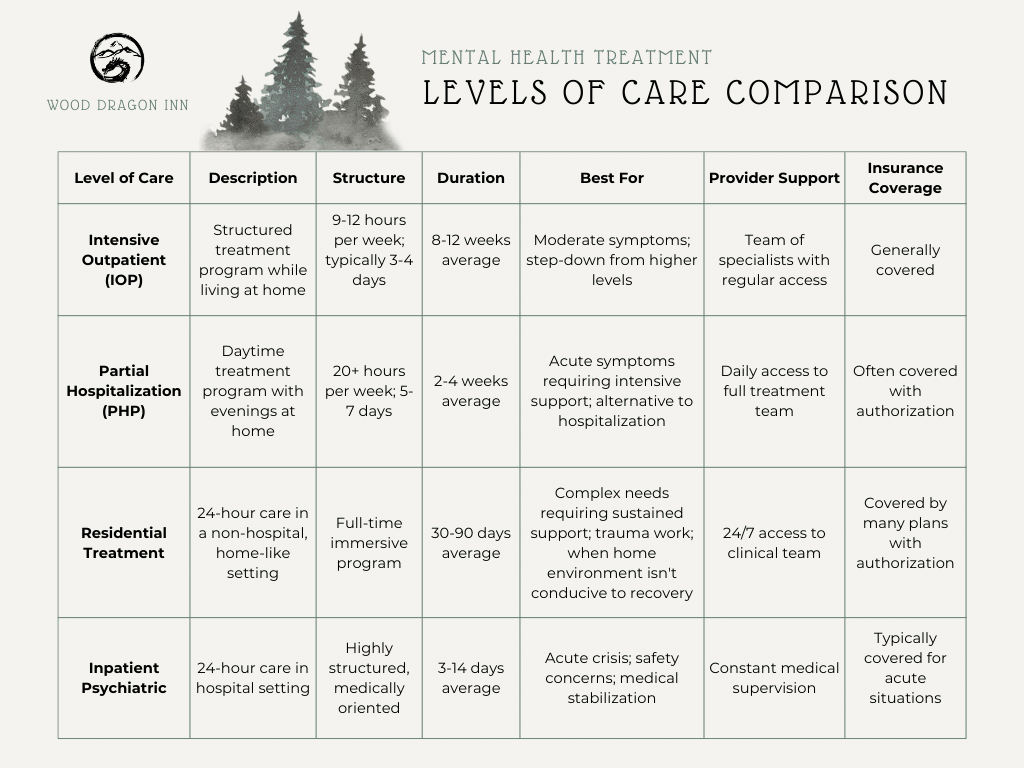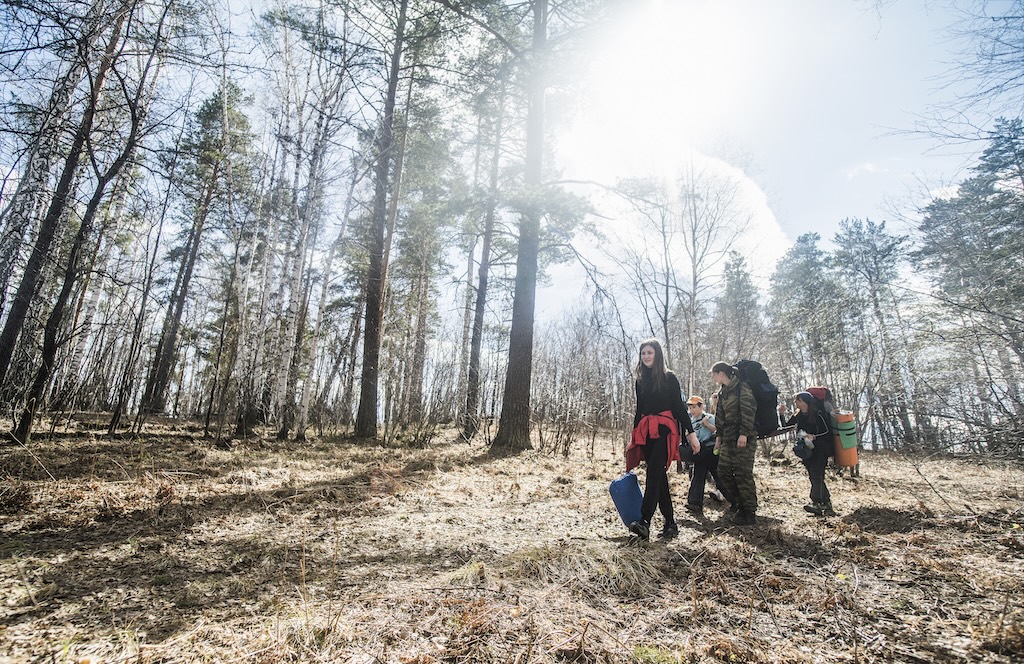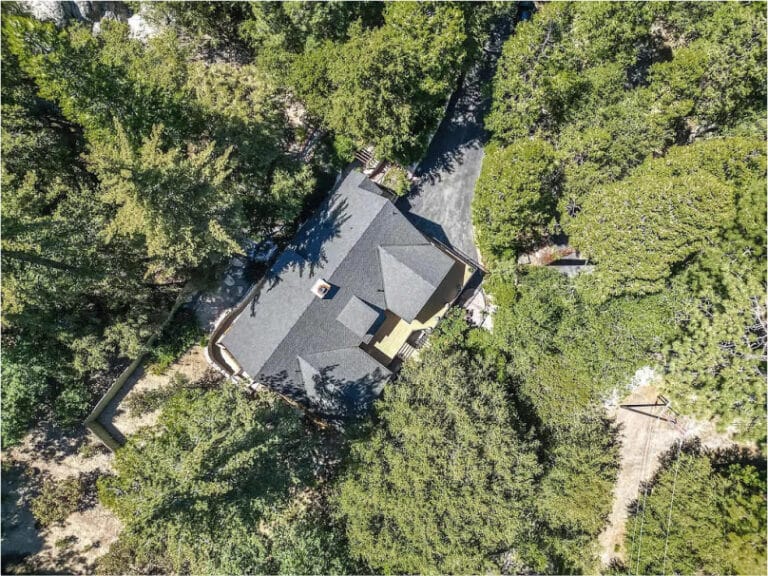In today’s fast-paced world, mental health challenges can sometimes exceed what traditional outpatient therapy can address. When individuals find themselves struggling with persistent mental health concerns that significantly impact their daily functioning, residential treatment offers a comprehensive, immersive approach to healing.
At Mental Health Residential at the Wood Dragon, nestled in the serene mountains of Idyllwild, California, we understand that seeking the right level of care is a crucial step toward lasting recovery and transformation.

Understanding Residential Mental Health Treatment
Residential mental health treatment provides 24-hour care in a non-hospital setting, offering a structured yet comfortable environment where individuals can focus entirely on their healing journey. Unlike brief psychiatric hospitalizations that primarily focus on crisis stabilization, residential treatment addresses both acute symptoms and underlying causes, allowing for more profound, more sustainable healing.
Key Features of Residential Treatment Programs:
- Immersive Therapeutic Environment: Participants live on-site in a community designed to support healing, removing them from everyday stressors and triggers that may impede progress.
- Comprehensive Assessment and Personalized Care: Treatment begins with thorough psychological and medical evaluations, resulting in individualized treatment plans tailored to each person’s unique needs.
- Structured Daily Programming: Days are thoughtfully scheduled with therapeutic activities, group sessions, individual therapy, and holistic practices to create a balanced approach to recovery.
- Professional Support: 24-hour access to mental health professionals ensures immediate assistance when emotional challenges arise, providing a safety net that outpatient care cannot offer.
- Peer Community: Living alongside others who share similar struggles creates opportunities for connection, mutual support, and reduced feelings of isolation.
When Is Residential Treatment Appropriate?
Residential treatment represents a significant commitment to one’s mental health journey. It may be particularly beneficial in the following circumstances:
- When outpatient therapy hasn’t produced sufficient improvement
- Following psychiatric hospitalization, as a step-down level of care
- When mental health symptoms significantly interfere with daily functioning
- For those needing stabilization and adjustment of medications in a supervised setting
- When a safe, supportive environment away from triggers is necessary
- For individuals with co-occurring disorders needing integrated treatment
- When trauma requires intensive therapy in a secure environment
At Mental Health Residential at the Wood Dragon, individuals often arrive after trying multiple approaches without finding lasting relief. Our residential mental health retreat offers the time, space, and expert care needed to break through barriers that have prevented healing in less intensive settings.
The Therapeutic Journey at a Residential Treatment Center
Entering residential treatment marks the beginning of a profound healing journey. At Mental Health Residential at the Wood Dragon, we view this journey as a transformation process—similar to how a garden requires careful tending to flourish. The path is personal and universal, involving moments of challenge, insight, and growth that ultimately lead to deeper self-understanding and renewed well-being. Let’s explore what an experience at a residential treatment center typically entails, from the first steps of admission to daily therapeutic experiences promoting lasting change.

1. The Admission Process
The journey typically begins with a comprehensive assessment to determine if residential treatment is appropriate. This evaluation considers medical history, previous treatments, symptoms, and individual goals. At Mental Health Residential at the Wood Dragon, we care to understand each person’s unique story before collaborating on a treatment plan that addresses their specific needs.
2. A Typical Day in Residential Treatment
While schedules vary between facilities, most residential programs offer a structured daily routine that creates a sense of stability and purpose. A typical day at a mental health retreat like Mental Health Residential at the Wood Dragon might include:
- Morning: Mindfulness practices, breakfast, and community meeting
- Mid-morning: Individual therapy or specialized group sessions
- Afternoon: Therapeutic activities, psycho-educational groups, and holistic practices
- Evening: Reflection time, community activities, and relaxation practices
Having a predictable structure for residential treatment helps rebuild healthy patterns while providing multiple therapeutic touchpoints throughout the day.
3. Length of Stay
Residential treatment typically ranges from 30 to 90 days, though some programs offer shorter or longer stays based on individual needs. The duration depends on numerous factors, including:
- Severity and complexity of symptoms
- Treatment progress and response
- Insurance coverage and financial considerations
- Aftercare support available upon discharge
It’s important to recognize that meaningful change takes time. At Mental Health Residential at the Wood Dragon, we work with each resident to determine the optimal length of stay for sustainable recovery, rather than rushing the healing process.
Therapeutic Approaches in Residential Treatment
Effective residential programs employ evidence-based therapies tailored to each individual’s needs. Common therapeutic approaches used in residential programs include:
1. Evidence-Based Therapies
- Cognitive Behavioral Therapy (CBT): Helps identify and change negative thought patterns and behaviors
- Dialectical Behavior Therapy (DBT): Teaches mindfulness, distress tolerance, emotion regulation, and interpersonal effectiveness
- Acceptance and Commitment Therapy (ACT): Focuses on psychological flexibility and values-based action
- Psychodynamic Therapy: Explores unconscious processes and early-life influences on current behaviors
- EMDR (Eye Movement Desensitization and Reprocessing): Particularly effective for trauma processing
2. Trauma-Informed Care
At Mental Health Residential at the Wood Dragon, we specialize in trauma-informed approaches that recognize the widespread impact of trauma and paths to recovery. Our trauma treatment acknowledges that trauma affects not just mental health but also physical well-being, relationships, and one’s sense of self and safety in the world.
Our trauma-focused residential program incorporates:
- Safe, predictable environments that minimize triggers
- Therapies specifically designed to process traumatic experiences
- Somatic approaches that address trauma stored in the body
- Emphasis on rebuilding a sense of safety, agency, and connection
By providing a secure setting where trauma can be addressed at its roots, residents often experience breakthroughs that weren’t possible in less intensive treatment settings.
3. Medication Management and Autonomy
Medication can be an essential component of treatment for many mental health conditions. At Mental Health Residential at the Wood Dragon, our approach to medication management emphasizes both effectiveness and personal autonomy:
- Comprehensive psychiatric evaluation to determine if medication would be beneficial
- Collaborative decision-making about medication options
- Careful monitoring of effectiveness and side effects
- Education about how medications work and what to expect
- Support for finding the optimal combination and dosage
- Preparation for medication management after discharge
Individuals should be active, informed participants in decisions about their medication. Our psychiatrists work closely with residents to ensure they understand their options and feel empowered in their treatment choices rather than simply being passive recipients of prescriptions.
4. Holistic and Complementary Approaches
Many residential treatment centers, including Mental Health Residential at the Wood Dragon, incorporate holistic approaches that address the mind-body connection:
- Mindfulness and meditation practices
- Yoga and movement therapies
- Art and music therapy
- Outdoor and nature-based activities
- Nutritional counseling
- Sleep hygiene support
These complementary approaches enhance traditional therapies by providing multiple pathways to healing and supporting overall well-being.
The Residential Treatment Environment: Creating Spaces for Healing

The physical environment of a residential treatment center significantly impacts the healing process. The most effective programs create spaces that feel safe, comfortable, and conducive to recovery.
1. Physical Setting
At Mental Health Residential at the Wood Dragon, our location in Idyllwild, California, surrounded by pine and cedar trees with mountain views, provides a natural sanctuary for healing. Research consistently shows that natural environments can reduce stress, improve mood, and support recovery from mental fatigue.
Elements that contribute to a therapeutic environment include:
- Comfortable, home-like accommodations
- Access to nature and outdoor spaces
- Areas for both socialization and privacy
- Spaces designed to minimize sensory overload
- Attention to physical comfort and safety
2. Community Aspects
The community formed within a residential treatment setting often becomes a powerful agent of healing. Living alongside others who share similar struggles reduces isolation and creates opportunities for:
- Practicing interpersonal skills in real-time
- Receiving feedback in a supportive context
- Building meaningful connections
- Developing empathy for self and others
- Experiencing belonging and acceptance
These community experiences often help residents develop relationship skills that translate to improved connections after treatment.
Transitioning from Residential Treatment: Continuing the Healing Journey
While residential treatment provides intensive support during a crucial healing period, the ultimate goal is to prepare individuals for successful functioning in their daily lives. Effective programs place significant emphasis on discharge planning and aftercare.

1. Discharge Planning
Comprehensive discharge planning typically begins early in the treatment process and includes:
- Identification of potential challenges after discharge
- Development of coping strategies for these challenges
- Connection to outpatient providers
- Creation of a relapse prevention plan
- Family education and involvement when appropriate
- Consideration of step-down options like partial hospitalization or intensive outpatient programs
2. Aftercare Support
Many residential facilities, including Mental Health Residential at the Wood Dragon, offer aftercare support to help bridge the transition:
- Alumni programs and check-ins
- Virtual support groups
- Referrals to local resources
- Guidance on maintaining therapeutic practices at home
This continued connection helps reinforce the skills and insights gained during residential treatment and provides support during the crucial early months post-discharge.
The Effectiveness of Residential Treatment
Research consistently demonstrates the effectiveness of residential treatment for many individuals, particularly those who haven’t responded adequately to outpatient care. Benefits often include:
- Significant reduction in symptom severity
- Improved daily functioning
- Better medication management
- Enhanced coping skills
- Stronger interpersonal relationships
- Greater self-understanding
- Increased resilience
While residential treatment represents a significant investment of time and resources, for many individuals, it provides the intensive, comprehensive care needed to make breakthroughs that weren’t possible in less structured settings.
Choosing the Right Residential Treatment Program
Selecting the right residential treatment center is a crucial decision. Factors to consider include:

1. Treatment Approach
Look for programs that offer evidence-based therapies appropriate for your specific conditions and needs. At Mental Health Residential at the Wood Dragon, our specialty in trauma treatment and emphasis on medication autonomy may be particularly beneficial for those with trauma histories or those seeking a collaborative approach to psychiatric care.
A program’s therapeutic philosophy significantly impacts your experience, so consider whether its approach resonates with your personal values and healing goals. Our emphasis on self-cultivation and transformation provides a framework that many find meaningful and effective for lasting change.
2. Qualifications and Staffing
Inquire about the clinical team’s credentials and experience, staff-to-resident ratios, and the availability of specialists relevant to your needs.
Mental Health Residential at the Wood Dragon is a state-licensed and nationally accredited mental health program meeting rigorous standards for quality care and safety. Our multidisciplinary team includes Western-trained psychiatrists and therapists alongside Eastern medicine practitioners, creating a truly integrative approach to mental wellness.
3. Environment and Setting
When looking into residential treatment, you should also consider whether you benefit more from a structured hospital-like setting or a more home-like retreat environment like Mental Health Residential at the Wood Dragon’s natural mountain sanctuary. The physical environment plays a crucial role in the healing process.
Our location in Idyllwild, surrounded by pine and cedar trees and mountains, provides a serene backdrop for recovery. Research shows that natural environments can reduce stress hormones, improve mood, and enhance cognitive function—all critical factors in mental health recovery.
4. Program Components
Evaluate whether the program offers specific therapies, groups, and activities that align with your treatment goals and preferences. At Mental Health Residential at the Wood Dragon, we provide a thoughtfully curated array of therapeutic interventions, including evidence-based psychotherapy, medication management when appropriate, and complementary approaches that address the whole person. Our program components are designed to address immediate symptoms while also building lasting skills for ongoing wellness.
5. Insurance and Financial Considerations
Mental Health Residential at the Wood Dragon accepts most major insurance providers, making quality residential care more accessible. Discuss coverage options, out-of-pocket costs, and potential financial assistance before deciding. Understanding your insurance benefits is crucial, as residential mental health treatment coverage varies by provider and plan. Our admissions team can help verify your benefits and explain what may be covered under your specific plan.
Insurance Coverage for Residential Mental Health Treatment
Many people are surprised to learn that residential mental health treatment is often covered by insurance, though coverage varies by provider and plan. Though specifics vary, the Mental Health Parity and Addiction Equity Act requires that insurance plans offering mental health coverage provide benefits comparable to medical coverage.
At Mental Health Residential at the Wood Dragon, we work with most major insurance providers to help make treatment accessible. Our admissions team can verify your benefits and explain what may be covered under your specific plan.
The Transformative Potential of Residential Treatment
Residential treatment represents more than just symptom management—it offers the opportunity for profound personal transformation. By stepping away from daily life to focus entirely on healing, individuals often gain:

- Deeper insight into themselves and their patterns
- A renewed sense of purpose and meaning
- Strengthened connection to values and authentic self
- Enhanced capacity for relationships
- New perspectives on challenges and possibilities
- Skills and practices that support ongoing growth
At Mental Health Residential at the Wood Dragon, we view this transformative journey through the metaphor of cultivation. Like a carefully tended garden, the process involves not just removing what no longer serves you but creating conditions for new growth to flourish.
Is Residential Treatment Right for You?
If you or a loved one is struggling with mental health challenges that haven’t responded adequately to outpatient care, residential treatment may offer the intensive support needed for meaningful change. Signs that residential treatment might be appropriate include:
- Feeling stuck despite outpatient therapy
- Experiencing recurring crises or hospitalizations
- Finding that symptoms significantly interfere with daily functioning
- Needing a safe environment away from triggers or stressors
- Requiring more structure and support than outpatient care can provide
- Wanting to address longstanding patterns or trauma in a comprehensive way
Find Healing With Residential Treatment

Seeking residential treatment represents a courageous commitment to your mental health and future well-being. While the decision to enter a residential program is significant, it becomes a turning point for many—a time of focused healing that sets the foundation for lasting recovery.
At Mental Health Residential at the Wood Dragon, we honor the courage it requires to seek help and commit to this level of care. Our approach combines evidence-based therapies, trauma-informed care, respectful medication management, and the healing power of nature to create a truly transformative experience.
Take the first step towards healing and well-being at Mental Health Residential at the Wood Dragon.
Your sanctuary in Idyllwild. Contact us today to explore our personalized mental health residential programs and embark on a transformative journey toward a brighter future.
References
1. Knable M. (2018). S202. EFFICACY OF LONG-TERM RESIDENTIAL TREATMENT FOR PERSISTENT MENTAL ILLNESS. Schizophrenia Bulletin, 44(Suppl 1), S404. https://doi.org/10.1093/schbul/sby018.989
2. de Andrade, D., Elphinston, R. A., Quinn, C., Allan, J., & Hides, L. (2019). The effectiveness of residential treatment services for individuals with substance use disorders: A systematic review. Drug and alcohol dependence, 201, 227–235. https://doi.org/10.1016/j.drugalcdep.2019.03.031
3. Gainer, D., Alam, S., Alam, H., & Redding, H. (2020). A FLASH OF HOPE: Eye Movement Desensitization and Reprocessing (EMDR) Therapy. Innovations in clinical neuroscience, 17(7-9), 12–20.









